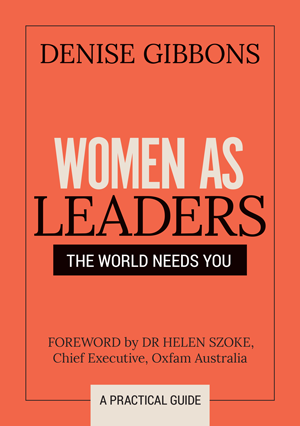What are your life regrets? Take time to assess
I don’t regret the things I’ve done, I regret the things I didn’t do when I had the chance.
Unknown
Regret is one of those emotions that has many layers.
Sometimes there is a hot emotional response such as forgetting a good friends birthday which spurs you into action to contact them and organise an alternative celebration. Hot emotional responses are guilt, embarrassment or anger about something you ought to have done or did.
Other times it’s a cool emotional response in that it is a regret about what you could have done not what you did do wrong.
These lingering regrets are often the story lines of tragic novels and films where people have felt like they have been trapped in the wrong version of their life or career. They can be the stuff that creates “mid-life” crises.
In a recent psychological six-part study about regret by Shai Davidai and Tom Gilovich with online volunteers, they discovered that it’s the regrets of inaction related to our unrealised ideal selves that cause the most long-term sorrow.
The reason for this is found in the basic premise of self-discrepancy theory created by psychology professor E. Tory Higgins. This theory contends that we have a trinity of selves: the actual, the ideal (your most fulfilled and majestic self), and the “ought” (the one who meets all expectations of one’s social role).
Davidai and Gilovich found from their study that inaction around moving towards a goal that helps towards an ideal-self related goal can have the biggest impact on your life.
The emotions you can feel at this time are often “cool” such as sadness or disappointment. You can supress them thinking that you will deal with them later.
“Later never shows up,” however, Davidai says. “[And] what we’re failing to see is in the long run, that reaction, which is very small in the beginning, actually grows and becomes bigger and bigger – 20 years of this cold emotion can become really painful.”
The action type emotions where you can repair the issue allows you to deal with it and let them go. This isn’t always the case for more lofty goals that you didn’t go for.
It can be complex too because it depends on the context to your life. Just simply going for a lofty goal like setting up the business you have always dreamed about might put your family’s financial security at risk. Sometimes it’s about choosing the imperfect solution you can live with!
Davidai and Gilovich suggest several solutions to the dilemma of life’s regrets. The first is around what I’m always banging on about – self-awareness. It’s important to take the time to discover what sort of person you are and what are your life dreams. What are you prepared to go for and what can you live with if your dream is not fulfilled?
Another solution is to remove the sting from the “What If’s”.
I remember I was half-way through secondary school and decided I wanted to be a medical doctor. I hadn’t studied science at all. Instead I had chosen a commercial route with bookkeeping, accounting and maths – (and shorthand Who remembers shorthand!!!). When I calculated how long it would take for me to catch up and become a medical doctor, I decided to continue along my business route. I studied business and commerce at University instead.
However, I have always been extremely interested in medical and health issues and I find I need to include lots of reading and research around this topic. I believe this has eased the disappointment about this life dream that did not eventuate. I might add, that I know I ended up in the right spot in business and commerce. I’m sure I’m a better accountant and financial adviser than I would have been a medical doctor. I have learnt to reframe my disappointment to ease the long-term pain of unfulfillment. This takes the sting out of my life “What If.”
Many of the discussions I have with women raise this tricky topic of regret. When you become a parent, there is an enormous amount of personal compromise to ensure that your children have the life that you dream for them. This may mean that you need to sacrifice your goals around your ideal self.
It’s important though that the sacrifice does not jeopardise your mental health because this may not only impact you but your entire family. My daughter came along later in life. I knew that I needed to hold onto my career and business because I would have resented too much the sacrifice. This would have flowed over into my parenting and family life affecting everyone that was dear to me.
Our other trap is the doing trap. Life just seems to continue to happen to you. It’s important to take time out and reflect on what are your life dreams for your ideal self.
A wonderful way to do this is to immerse yourself in you. My Women’s Empowerment and Leadership program can assist. Come along and take the opportunity to explore your most important person – you.
My next program is scheduled for 5th and 6th July 2018. Please contact me to discuss.
Always happy for comments too.


